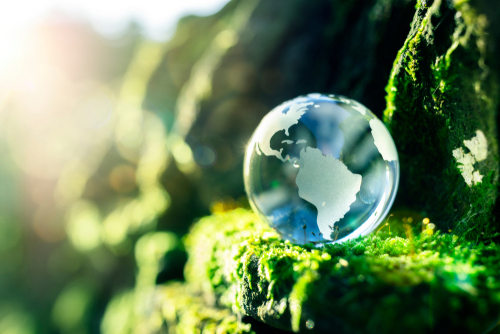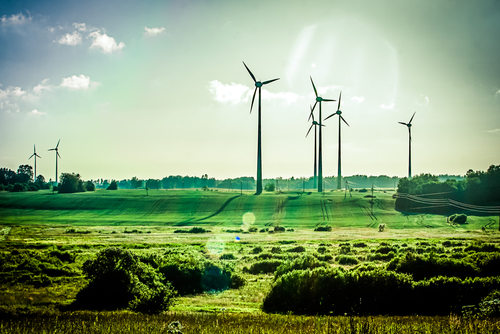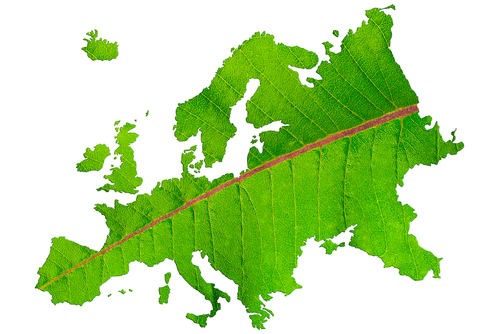To domesticate the Green Deal in Poland Oswoić Green Deal w Polsce (the Green Deal through the eyes of Kowalski)
 The Green Deal constitutes one of the most important elements of the policy of the European Union in the period 2019-2024, undergoing constant modifications. It is a strategic idea on how to build a climate-neutral economy and sustainable and responsible communities. It is a certain plan of action, in which the European Commission combines the areas which till now have been subject to different policies: the uprating of the economic competitiveness and the strategic security with the ecological questions and upgrading the quality of life of the continent inhabitants. The circular economy, which is a model of husbandry in which the production cycles are closed, is becoming a model concept. The frugal usage of resources enables to diminish of the production of waste which in turn (as far as it is possible) is used again in different types of processes, becoming a resource.
The Green Deal constitutes one of the most important elements of the policy of the European Union in the period 2019-2024, undergoing constant modifications. It is a strategic idea on how to build a climate-neutral economy and sustainable and responsible communities. It is a certain plan of action, in which the European Commission combines the areas which till now have been subject to different policies: the uprating of the economic competitiveness and the strategic security with the ecological questions and upgrading the quality of life of the continent inhabitants. The circular economy, which is a model of husbandry in which the production cycles are closed, is becoming a model concept. The frugal usage of resources enables to diminish of the production of waste which in turn (as far as it is possible) is used again in different types of processes, becoming a resource.
The Green Deal and the pandemic
The pandemic of COVID-19 changed the approach towards the European Green Deal. The conducted actions to limit the climate crisis were overlapped by a new crisis. The European Parliament strives for the Green Deal to become a foundation of the reconstruction of the continent after the pandemic slowdown. The pandemic highlighted the influence of the economy in its current shape on the natural environment, the new generation of the economy after the crisis is to be climate neutral and more immune1.
- the European Climate Law,
- the European Climate Pact, and the 2030,
- Climate Target Plan.
Apart from the full climate neutrality till 2030 they include also the engagement of the EU citizens in the climate actions3.
Why does the perception of the European Green Deal in Poland require correction?
The European Green Deal is a complex and demanding strategy in the sense that it relies on the change of thinking of the up till now the way of functioning of both the economy and lifestyle of the societies of Europe. The more the road to obtain the goal (in this case the climate neutrality) is longer, the bigger anxieties it can awake. This is the situation in Poland which is beginning from a different threshold than other European countries, for example in the matter of the usage of coal energy. Thereof in our country, the European Green Deal can awake greater resistance and overgrow with myths.



The most commonly repeated myths and social anxieties
We should remember that the energy resources deposits are not unlimited, that's why sooner or later the transition to other sources of energy would be inevitable, and in the wake of them certain raises of prices. Such growths, as a result of neglect and delay in time the process of transformation, would be however more painful and costly than in the situation of conducting this transformation in a way planned already today. The tendencies concerning the extraction of hard coal in Poland indicate the drop of yield for 2/3 in the last 40 years. The maintaining of the drop of such speed will lead to shutting down of the mining in the perspective of the upcoming 30 years – what is convergent with the caesura of the implementation of the full climate neutrality in Europe in the perspective of 2050. Poland belongs to the biggest importers of coal in the EU. The choice should be clear.
The arguments concerning security directly speak for the transformation. The deposits of energy resources in Europe to the large extent went flat – the Community to the largest extent uses the important resources. The renewables guarantee the independence from the external supplies. The European Green Deal is a policy preceding what is inevitable.
The causes of anxieties
The change of the way of perceiving reality doesn't take place flawlessly and it is always a long process requiring leaving the comfort zone. The Green Deal is not only a movement away from coal but a change on the technological, social and mental level. This change – instead of being associated with a new opening – for the large part of the society is still an opposite to the stability – which is a movement away from something known and durable. This is followed by the resistance to change, which comes from the outside and with which Poles have a problem, referring to the historical experiences from the last 300 years.
 The complexity of the European Green Deal policy is its big advantage however with its immensity of topics and the complexity of the problem, it causes incomprehension and disorientation. It results in changes in many fields: from production, through energy and transport to consumption. Moving away from coal means not only the closure of mines and the proposal of rebranding for miners but also the changes in each branch of the economy, basing on coal energy. Therefore a lot of interpretations of the assumptions of the Green Deal from different social and professional groups appear.
The complexity of the European Green Deal policy is its big advantage however with its immensity of topics and the complexity of the problem, it causes incomprehension and disorientation. It results in changes in many fields: from production, through energy and transport to consumption. Moving away from coal means not only the closure of mines and the proposal of rebranding for miners but also the changes in each branch of the economy, basing on coal energy. Therefore a lot of interpretations of the assumptions of the Green Deal from different social and professional groups appear.
In the evaluation of the Green Deal, a mechanism appears which is based on short-term thinking and is submerged first of all in what is here and now („this doesn't concern me”). The cause for this can be seen in the planned date of completion of the realization of the flagship goal which is climate neutrality in 2050 – such a complex problem will require 20 years of work.
Klaudia Plac, Krajowy Ośrodek Zmian Klimatu IOŚ-PIB
Alicja Piekarz, Krajowy Ośrodek Zmian Klimatu IOŚ-PIB
1. https://www.europarl.europa.eu/news/pl/headlines/society/20200618STO81513/zielony-lad-klucz-do-neutralnej-klimatycznie-i-zrownowazonej-ue (access: 01.02.2021)
2. https://ec.europa.eu/info/strategy/priorities-2019-2024/european-green-deal_pl (access: 01.02.2021)
3. https://ec.europa.eu/clima/policies/eu-climate-action/pact_en (access: 01.02.2021)




